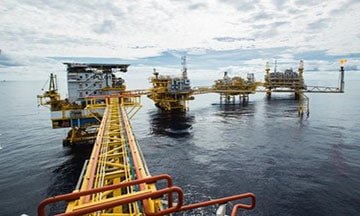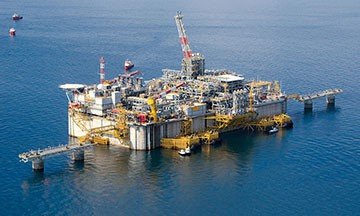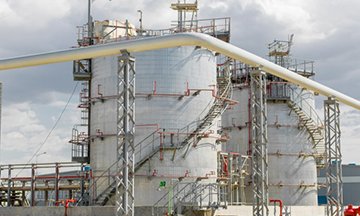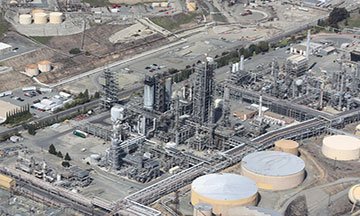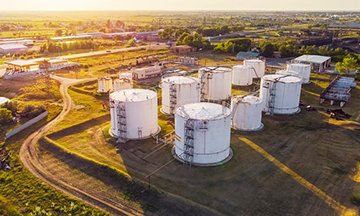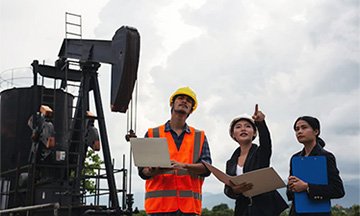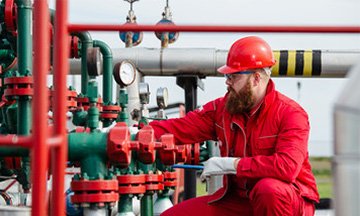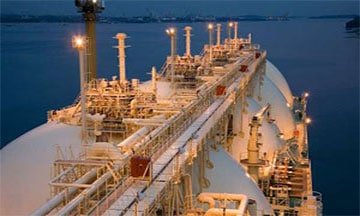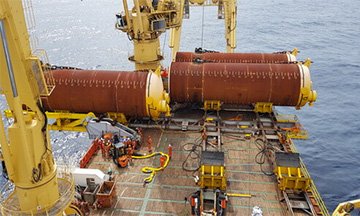Petroleum Exploration and Energy Production Process and Technology
| Date | Venue | Duration | Fees | |
|---|---|---|---|---|
| 22 Apr - 26 Apr, 2024 | Dubai | 5 Days | $4750 | Register |
| 06 May - 10 May, 2024 | London | 5 Days | $5695 | Register |
| 27 May - 31 May, 2024 | Dubai | 5 Days | $4750 | Register |
| 03 Jun - 07 Jun, 2024 | Dubai | 5 Days | $4750 | Register |
| 15 Jul - 19 Jul, 2024 | Toronto | 5 Days | $5695 | Register |
| 29 Jul - 02 Aug, 2024 | Dubai | 5 Days | $4750 | Register |
| 20 Aug - 22 Aug, 2024 | Doha | 3 Days | $4100 | Register |
| 26 Aug - 30 Aug, 2024 | Dubai | 5 Days | $4750 | Register |
| 16 Sep - 20 Sep, 2024 | Dubai | 5 Days | $4750 | Register |
| 14 Oct - 18 Oct, 2024 | Prague | 5 Days | $5695 | Register |
| 21 Oct - 25 Oct, 2024 | Dubai | 5 Days | $4750 | Register |
| 11 Nov - 15 Nov, 2024 | Dubai | 5 Days | $4750 | Register |
| 25 Nov - 29 Nov, 2024 | New York | 5 Days | $5695 | Register |
| 02 Dec - 06 Dec, 2024 | Dubai | 5 Days | $4750 | Register |
Course Overview
Petroleum exploration and production activities constitute the upstream sector of the oil and gas value chain. This is a high-risk, high-reward sector.
Organisations focus on activities of exploring, testing, extracting, refining and producing oils of different types from the crude oil obtained from reservoirs.
Given the risks involved in these activities, operations need to be carefully carried out, since rewards are also extremely high. This brings in the demand for robust and specialised training to carefully and skilfully execute and handle petroleum exploration and production operations.
This Zoe’s Petroleum Exploration and Production training course will empower you with complete knowledge and information about all activities involved in petroleum exploration and production.
The Petroleum Exploration and Energy Production Process and Technology course covers all critical concepts necessary for one to do well in any role in petroleum exploration and production.
Further, by undertaking this course, you will gain the required confidence and experience to successfully assume higher roles and responsibilities within the upstream sector, thereby fostering faster career growth and progression.
Course Objectives:
The primary objective of this Petroleum Exploration and Energy Production Process and Technology training course is to empower professionals with—
- a thorough understanding of all critical aspects of petroleum exploration and production
- the required knowledge and perspective to review existing processes and check for gaps and solutions for enhancements
- adequate confidence and experience to undertake the training of other professionals on petroleum exploration and production practices
- the required foresight and skills to predict risks and devise corrective action plans to mitigate the negative impact of these
- the understanding and knowledge of advanced concepts that can be applied to exploration and production operations to enhance quality and productivity
- the capability and skill to work with new technology to enhance the speed and quality of operations
- thorough knowledge of all regulations and legislations to be followed when carrying out exploration and production activities and ensuring that one’s organisation adheres to these
- the ability and potential to contribute to building organisational credibility and promoting organisational development through better, smarter operations
- the overall skill set and capabilities to undertake higher roles and responsibilities within or outside the organisation, thereby widening the scope for career growth opportunities
Training Methodology
Zoe Talent Solutions delivers training in a unique format comprising theoretical and practical exercises. The theoretical part of training is through lectures by experienced professionals from the relevant domain, while the practical application is ensured through assignments, projects, role-plays etc.
Two-way participation and trainee interaction is encouraged by assigning these tasks and projects in groups. Relevant case study discussions help the trainees relate the training content to practical scenarios.
Trainees are also encouraged to share related real-life experiences at their workplaces and these are then discussed with the rest of the group and in relation to the training content.
This format of training is adopted by Zoe Talent Solutions for all its courses and is called the Do–Review–Learn–Apply Model.
Organisational Benefit
Organisations whose professionals attend this Petroleum Exploration and Energy Production Process and Technology training course will benefit in the following ways:
- Optimal, successful petroleum exploration and production operations handled by trained and experienced professionals
- Regular training of other employees related to best practices and precautions in exploration and production operations
- Frequent audits to ensure that systems and processes are running optimally and enhancements are made in time
- Effective risk assessment and management to prevent losses to life, property and/or the environment
- Adherence to all required standards and guidelines for petroleum exploration and production
- Application of advanced technology to achieve operational excellence
- Organisational credibility because of better risk management and reduced costs, thereby inviting greater investments
- Better employer branding because of robust guidelines to protect employee health and safety
- Organisational growth and development because of greater credibility, better risk management and increased investments
Personal Benefits
Professionals opting for this Petroleum Exploration and Energy Production Process and Technology course will benefit in the following manner:
- Complete understanding and knowledge of all petroleum exploration and production activities
- Improved foresight and perspective to predict risks and devise corrective actions to prevent impact to the organisation
- Increased skill and potential to conduct regular inspections of existing processes and systems and suggest enhancements, wherever necessary
- Increased confidence, experience and knowledge to train other professionals on petroleum exploration and production operations
- Greater understanding of international standards and guidelines of exploration and production operations, and ensuring that one’s organisation adheres to these
- Better capability and confidence to work with advanced technology to improve operations for achieving operational excellence
- Greater understanding of advanced concepts in petroleum exploration and production and applying these to existing processes
- Increased ability and potential to contribute to organisational growth through better risk management in petroleum projects, operational excellence, reduced costs, etc.
- Enhanced skill set and capabilities to successfully assume higher roles and responsibilities related to managing multiple functions of exploration and production, thereby increasing the scope for greater opportunities for progression within and outside one’s organisation
Who to Attend
- Top management of an organisation playing an active role in strategic decisions related to exploration and production
- Engineers performing functions related to exploration and production
- Managers and leaders responsible for overseeing end-to-end operations for petroleum exploration and production
- Vendors and suppliers providing raw material or finished products or equipment at various stages of exploration and production
- Internal and external auditors responsible for ensuring adherence to all standards and benchmarks
- Legal and financial advisors responsible for providing expert advice to the top management to make effective decisions
- Any other professional interested in knowing more about petroleum exploration and production
Course Outline
This Petroleum Exploration and Energy Production Process and Technology training course includes the following topics critical to understanding petroleum exploration and production:
Module 1 – Stages in the Exploration and Production Lifecycle
- Exploration
- Appraisal
- Development
- Production
- Decommissioning
Module 2 – Elements of a Petroleum Prospect
- Source rock
- Migration
- Reservoir
- Trap
Module 3 – Types of Oil and Gas Reserves
- Proved reserves
- Probable reserves
- Possible reserves
Module 4 – Activities Covered by An Exploration Permit
- Database creation
- Data analysis
- Mapping, geological and photo-geological survey programming
- Seismic surveys
- Seismic data interpretation
- Well location choice
- Drilling
- Result analysis and conclusion
Module 5 – Methods of Crude Oil Exploration
- Oil traps
- Simple fold trap
- Fossilised coral reef
- Fault trap
- Salt dome
- Gravity survey
- Seismic survey
- Remote sensing
Module 6 – Geophysical Methods of Exploration
- Gravimetric
- Magnetometric
- Magnetotelluric
- Seismic
Module 7 – Upstream Oil and Gas Emission Sources (Exploration Sources)
- Drilling rigs
- Hydraulic fracturing pumps
- Mud degassing
- Well completion venting
Module 8 – Upstream Oil and Gas Emission Sources (Production Sources)
- Artificial life engines
- Associated gas venting
- Condensate and crude oil tanks
- Dehydrators
- Gas-actuated pneumatic pumps
- Wellhead compressor engines
Module 9 – Potential Environmental Impact Due to Petroleum Exploration and Production Activities
- Human, socio-economic and cultural impact
- Atmospheric impact
- Aquatic impact
- Terrestrial impact
- Ecosystem impact
- Potential emergencies
Module 10 – Success Factors for Upstream Oil and Gas Operations
- Spare capacity through the value chain
- Effective project management
- Interaction and collaboration with the service sector
- Discipline in operations
- Continued contracts with trusted parties
Module 11 – Challenges of the Exploration and Production Industry
- Higher-resolution subsurface imaging
- Re-use of produced water
- In-situ molecular manipulation
- Increase of hydrocarbon recovery factors
- Carbon capture and sequestration
